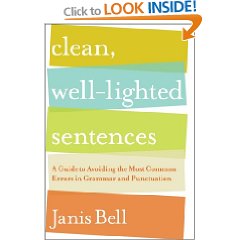Today we welcome guest blogger Dr. John Yeoman, who tutors creative writers in the UK and offers hands-on instruction in writing. His take on the creative writing process is definitely right up our alley, and if you enjoy this post, we’d love to hear from you in the comments section. We figure some of our US-based readers might not be familiar with terms like “tosh” or know where Stratford is (we recommend watching more BBC America), but we do feel it’s safe to assume you can connect the dots without editorial interference–a few days of BBC America will sort you out, mate. Many thanks to John for his post tackling a sadly pertinent question…
Why are so many best-selling novels unreadable?
I don’t mean the Booker award winners that wing predictably from bookshop to landfill in the time it takes a reader to cry ‘Bosh!’. I mean the novels that top The New York Times best-seller lists for months on end. Reassured, we buy them. We plod through their first clumsy chapters. And we cry ‘Bosh!’.
Must we conclude there are ‘good’ novels and best-selling novels but they are rarely the same? Or, more rationally, that a ‘good’ novel is simply one that many people enjoy, whether it’s bosh or not? That’s dangerous.
We’d first have to define a ‘good’ novel and no two readers would agree on a definition. But here’s mine. It’s a story that we’d willingly read twice. At a stroke, there go most of the Amazon chart toppers. Few will be remembered fifty years from now and fewer will be read.
Ironically, that fate will be shared even by those novels that satisfy my definition of ‘good’. Hulbert Footner was a best-seller circa 1910 with his Madame Storey tales. In the 1920s, S S van Dine made millions from his Philo Vance detective novels. Who reads them now? Only scholars. Yet all these stories are ‘good’. I’ve re-read them several times.
Why have they died? Fashions change.
It’s heartbreaking to conclude that success in novel writing has little to do with the intrinsic quality of a work and everything to do with fashion. Most of Edgar Wallace’s stories – with the arguable exception of the Four Just Men series – are unreadably bad. His badness was notorious in his own day. He was badder even than Dan Brown and critics wondered, then as now, how anyone could buy such tosh.
Yet, of course, they did – in their millions. Crowds follow fashion.
What can authors learn from this?
Simply, we must stop trying to perfect our craft skills. A basic competence is good enough. Instead, we should hone our expertise in spotting trends that might emerge two years hence – the average time it takes to write a print book and get it in the book shops. (An ebook novella might require just three months, of course.)
First, we must study trend gurus like Gerald Celente. Even if their forecasts are unoriginal (prophets who want to stay in business take no risks), they may help us to define the issues that will still resonate come publication day.
Second, we should craft a novel around three of those issues. (Why three? One may fade away, one may have become a cliché, but one might still contain a whiff of freshness. With our eyes fixed firmly on Google Trends, we should plan to make major scene cuts up until the very last moment.)
Third, and this is a provocative suggestion, we should model our protagonist upon a global celebrity who – given his or her reputation or occupation – is likely to die a scandalous death within two years. The moment we hear of that person’s demise, we can rush out our novel. Bestsellerdom is guaranteed within a week! (A book can be printed, publicised and distributed overnight, if publishers really want to do it.)
Of course, this gambit is ghoulish. It is unthinkable for publishers of integrity, all three of them. The rest will love it.
We won’t have to work so hard on our next novel. Our name will be famous. It will be as fashionable as that of Umberto Eco. We can publish our laundry list (or The Prague Cemetery), and millions will buy it and acclaim its every cryptic word.
This three-step process works.
Proof? It’s the very sequence that Shakespeare followed in 1609.
Chewing nutmeg one night (the way Nostradamus got his visions), he said: “Methinks, there is happening at this moment a great shipwreck on the Islands of the Bahamas and within a year it will be the gossip of every alehouse in England. Ergo, now is a good time to write The Tempest.”
News of the Bahamian shipwreck came to England around 1610. Indeed, it was the gossip of the land. And Shakespeare by then had written his play. What global celebrity had he cast as its protagonist? Why, himself! At the end of the play, you will recall, Prospero drowns his book. After the debut of The Tempest in 1611, Shakespeare did the same. He stopped writing. He retired to Stratford, a very wealthy man.
Clearly, Shakespeare used the three-step process. It works. Why don’t they teach it on creative writing programs?
Dr. John Yeoman, PhD Creative Writing, judges the Writers’ Village story competition and is a tutor in creative writing at a UK university. His hands-on course in story writing for profit can be found at: http://www.writers-village.org/academy


 Writers make lots of mistakes. That’s why the first version of what you write is called a “first draft”. The very name implies you’re going to go back and do some things over–preferably BETTER than the first time.
Writers make lots of mistakes. That’s why the first version of what you write is called a “first draft”. The very name implies you’re going to go back and do some things over–preferably BETTER than the first time.